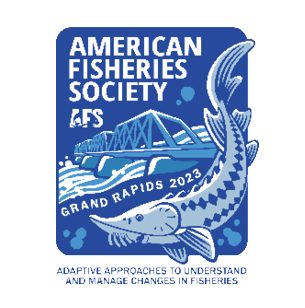The focus of this symposium, held at the 2009 annual meeting of the American Fisheries Society in Nashville, TN, was to highlight relevant educational techniques and approaches that facilitate learning with respect to fisheries education in today’s society. Presentations from this symposium are available for download (pdf format).
The process of educating fisheries professionals has greatly changed over the last century and has occurred in response to a myriad of factors – management philosophies; technologies; demographics; and socio-economic, political, and cultural shifts – that have directly or indirectly influenced education trends. Adapting to these needs has been problematic from a pedagological standpoint with ever-increasing demands on undergraduate natural resource curricula (credit limits), program limits (e.g., shrinking faculty numbers and increased workloads), and funding cuts. Moreover, the mission of many academic departments has moved away from traditional fisheries and wildlife curricula by broadening coursework (e.g., conservation biology, landscape ecology) to compensate for real or perceived changes attributed to student and employer expectations. Unfortunately, these issues are too often translated into the professional arena as students progress into the workforce. Recent advances in educational theory have improved our understanding of how to meet student learning needs in today’s environment. Specifically, this includes how to improve critical and creative thinking, communication skills, and facilitate retention of science-based information. In addition, the concept of strategically linking curricula objectives with employer needs requires movement away from traditional teaching methods and toward more novel approaches. Lastly, when considering the student-teacher interaction, we must consider the diversity and evolution of students as well as generational inequities between faculty and students entering fisheries programs.
The focus of this symposium, held at the 2009 annual AFS meeting in Nashville, TN was to highlight relevant educational techniques and approaches that facilitate learning with respect to fisheries education in today’s society. Below is the list of presenters with links to their presentations.
| Lead author | Topic | Download |
| Session I: Curricula and the Job Market — Will We Meet the Demand? | ||
| K. Millenbah | Evolution of a curriculum: preparing fisheries professionals to thrive in a changing environment | |
| D. Gabelhouse | Needs and proficiencies of fisheries hires by state agencies | |
| S. Hudy | Federal marine personnel needs and perceptions of competency in management and research hires | |
| J. Kosa | Federal inland personnel needs and perceptions of competency in management and research hires | |
| S. McMullin | Are current curricula on target? | |
| Session II: Understanding Students — Facilitating the Learning Process | ||
| B. Murphy | A ‘C’ change for fisheries education: from course content and coverage to curiosity, cognition, and constructivism | |
| C. Moffitt | Globalization and fisheries management: what does it mean for educators? | |
| K. Hunt | Considering changes in demographics and diversity | |
| B. Graeb | Understanding student motivations to improve learning: bridging generational chasms | |
| Session III: Teaching Strategies — Aligning Content Needs with Delivery Solutions | ||
| D. Orth | Managing course content: what is important? | |
| M. Hansen | A model for teaching scientific writing in an undergraduate curriculum | |
| T. Sutton | Distance learning in today’s classroom: the good, the bad, and the ugly | |
| G. Habron | Fishing for cases: learner and instructor approaches | |
| B. Knuth | Experiential-based learning: student immersion in policy-making processes for fisheries resources | Not available |
| A. Danylchuck | Immersion and place-based learning | |
| T. Lauer | Student assessments: are we doing it the right way? |

